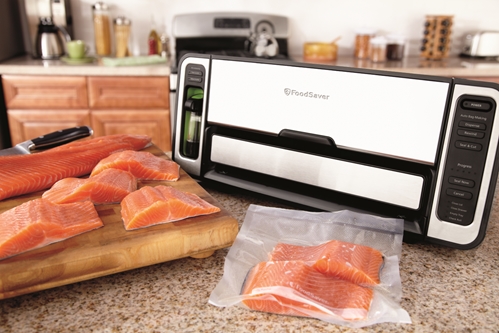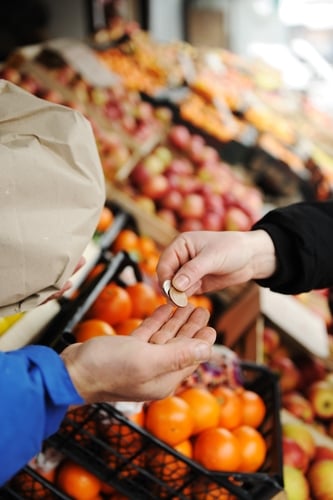
The Science Behind Vacuum Sealing
- Fresh Life
- 10/27/14
- Share
From storing off-season fruits to keeping your catch fresh, vacuum sealing is perfect for preserving your precious edibles. While it's hard to deny the benefits that stem from using your FoodSaver® 2-In-1 Vacuum Sealing Kit, you may not know the science behind the process, or why this may be the most effective way to elongate the shelf life of your food.
The Impact of Air on Food
Air can be one of the greatest enemies to your food, as compounds can have a significant effect on certain products' taste, quality and integrity over time. Ready Nutrition reported that vacuum sealing is ideal for foods that need to stay moist, as an airtight environment means juices cannot escape or become impacted by the air. The source also noted that this type of preservation strategy can prevent solid foods - like brown sugar and flour - from getting hard, as they cannot absorb moisture from the air.
Using this strategy is also one of the best ways to fight against freezer burn. Since foods are no longer directly exposed to the harsh environments of the freezer, they take significantly longer to suffer the effects of burn that can form due to poor storage or too much air.
How Does It Work?
Vacuum sealing does exactly what its name implies - seals the contents of a plastic bag through a vacuum. After placing your food in a sealable bag, a vacuum sealer removes the air and leaves the item intact for long-term storage. If you're sealing an item that has juice you don't want to lose, it's important to freeze the food for a few hours, then seal it for the long haul.
The vacuum created by the sealer prevents any compounds from permeating the bag. This may include oxygen, spilled liquids or curious insects that have a taste for your treats.
Preserving by More Effective Means
When it comes to preserving foods for an extended period of time, vacuum sealing is a great option. Other preservation methods - such as canning, salting and drying - offer unique benefits depending on the type of food you're trying to save, but vacuum sealing is effective for the majority of items. The National Center for Home Food Preservation reported that it's important to follow proper thawing techniques when removing vacuum sealed items from the freezer, as these steps can further increase the quality of your stored foods.



